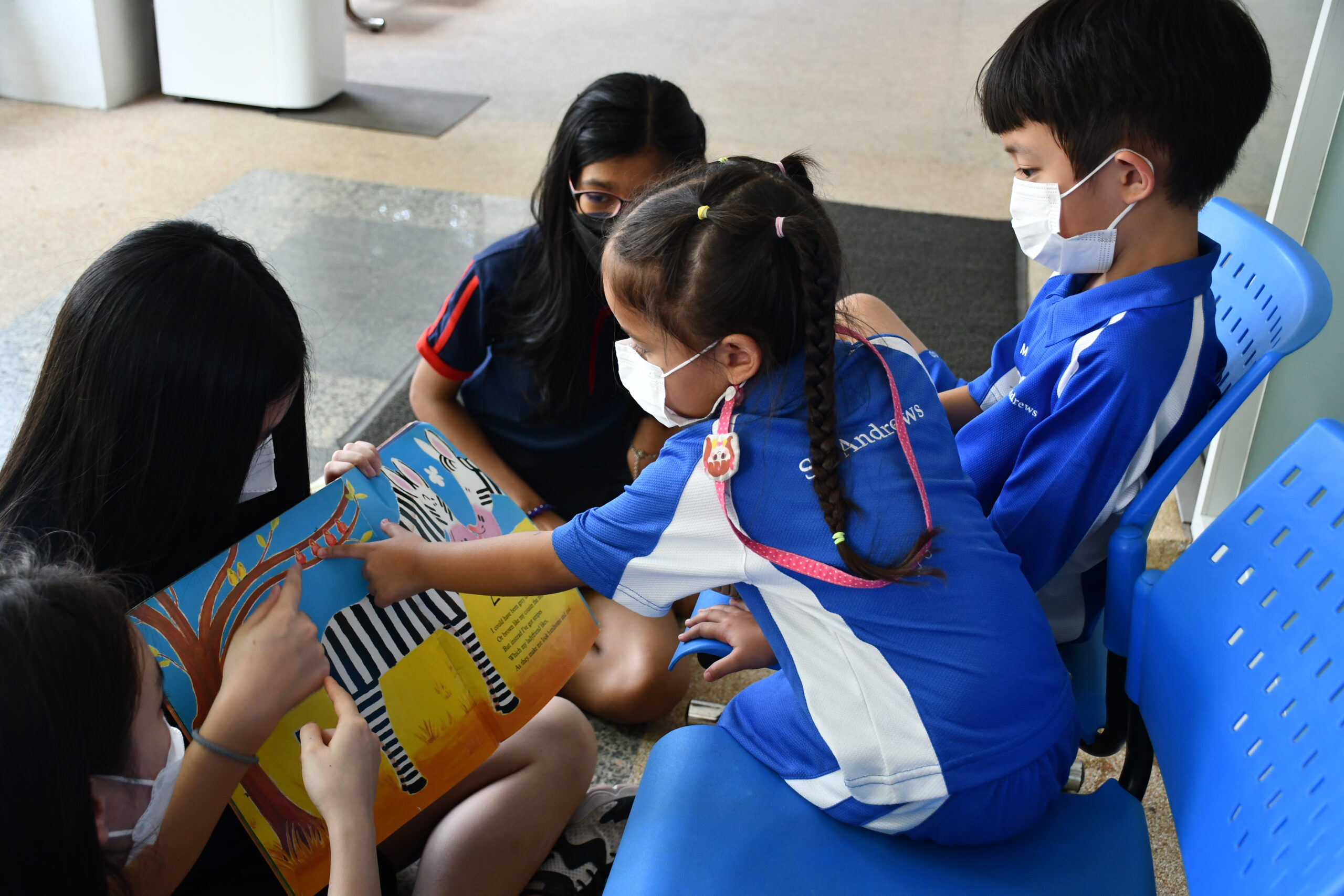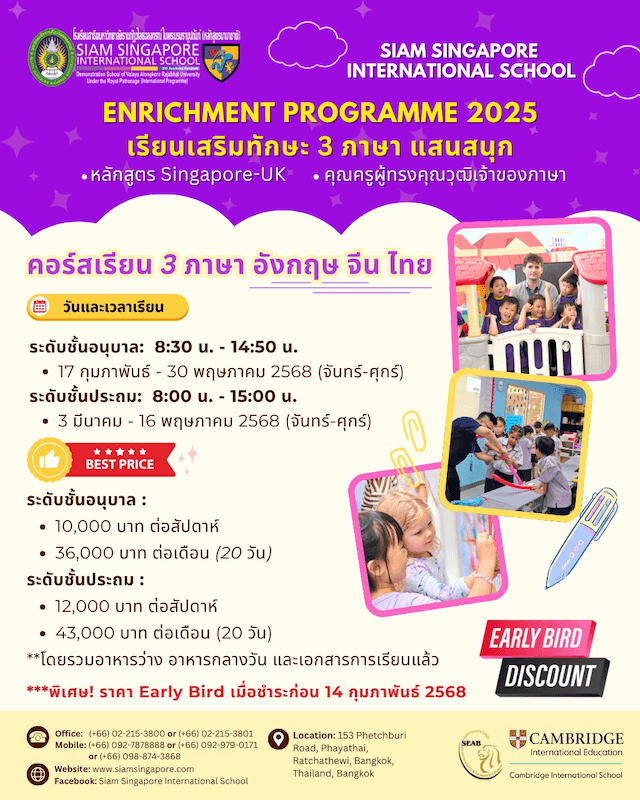We are all aware of the many benefits of reading for children’s development. Not only does it improve their literacy skills and vocabulary, but it opens up a whole new world of excitement and adventure. Parents play a big part in encouraging the joy of reading for pleasure in their children, and there are many simple things you can do to help this process.
School Librarians at St. Andrews Sukhumvit 107 have been helping children get the most from literature for many years, and offers the following advice to help your child love reading.
1. Start young. Parents should start reading to their children when they are toddlers, and even from this young age it’s good for them to see you reading books – this is good role modelling.
2. Bedtime stories are so important. This one-to-one time between a parent and their child is really important; it encourages a special bond between you, so it’s good to make time for it as part of your evening routine. If your children are finding reading independently challenging, I advise you to keep reading to your child. Quite often they are tired at the end of a busy day, and a bedtime story shows them that reading is a fun experience.
3. There’s no age limit for reading stories to children. Read to them for as long as they want to. While children are still developing their reading skills, reading to them means you can explain points of the story, and you can discuss what is happening in the plot together, so there’s no rush to stop even as your child grows older.
4. Take your time. In terms of how long to read to your child each day, this is totally up to you. Even just 10 minutes a day can make a difference – and when you look back on their childhood you won’t regret spending this time with them.

5. Don’t read using ebooks at bedtime, but during the day we think it’s fine. Getting away from a screen is part of the process of winding down before bed. Some families set some time aside as being ‘technology free’ every week and this is great idea to get together as a family and read or play board games together.
6. Be guided by your children’s tastes. Here at the library, we let children choose their books, although we may help guide them a little. We talk about the author of whatever story we are reading aloud, and explain the other books this author has written. This helps children explore authors’ work independently.
7. If your child reads widely, use the library. Some children love to read the same stories again and again, but others like a new story each time. We have 1,000s of books in our at school library, so if your child likes lots of variety I’d advise going to the library!

8. It’s fine to read to your child in your mother tongue, even if your child is learning English as a second language, reading for fun in your first language shouldn’t affect that process.
9. Encourage children to read simple versions of the classics first, they can start easy and get more challenging as they gain confidence and interest in these fantastic stories. Try guiding your child to the authors you loved as a child – chances are your children will enjoy them too. Or ask the librarian at your school.
10. Graphic novels are great for developing interest and confidence in children’s reading. If your child is a reluctant reader, maybe try a novel in a graphic novel format first, and you can always move onto the print format as their reading skills grow.
11. Best tip is to make reading fun. Our students love coming to the school library which is a joy to see. Reading opens up a whole new world to children and so make it fun for them, and you too.















